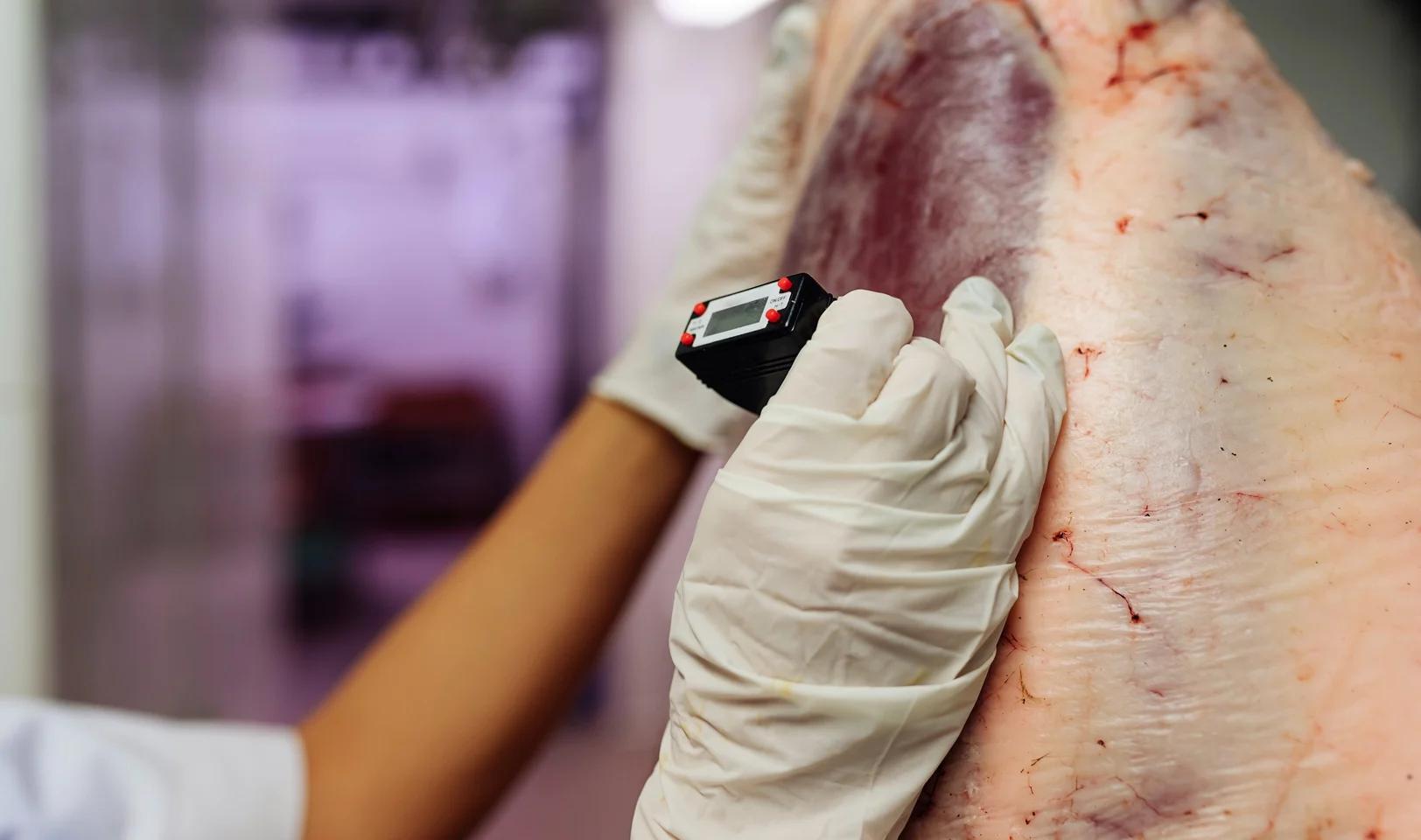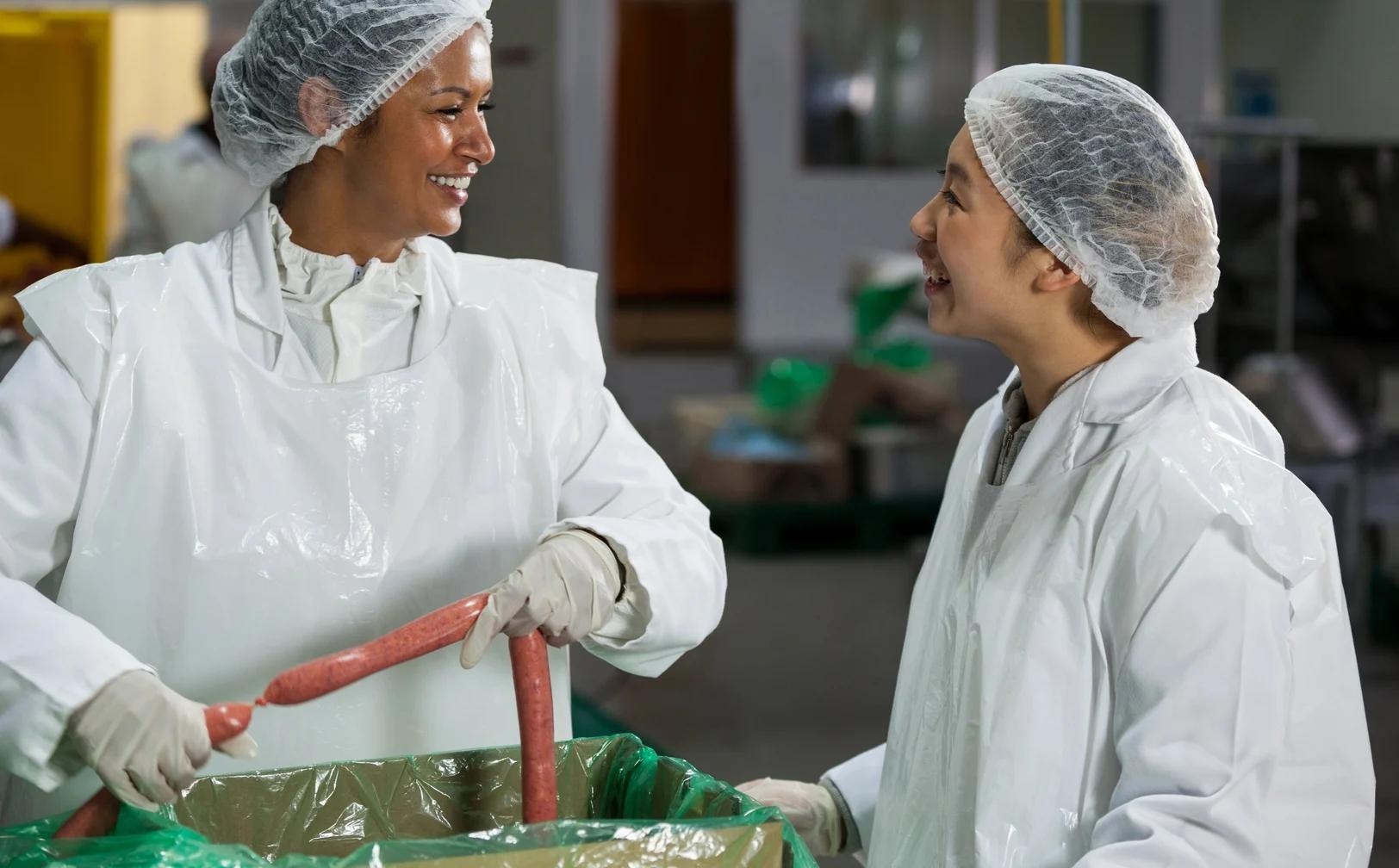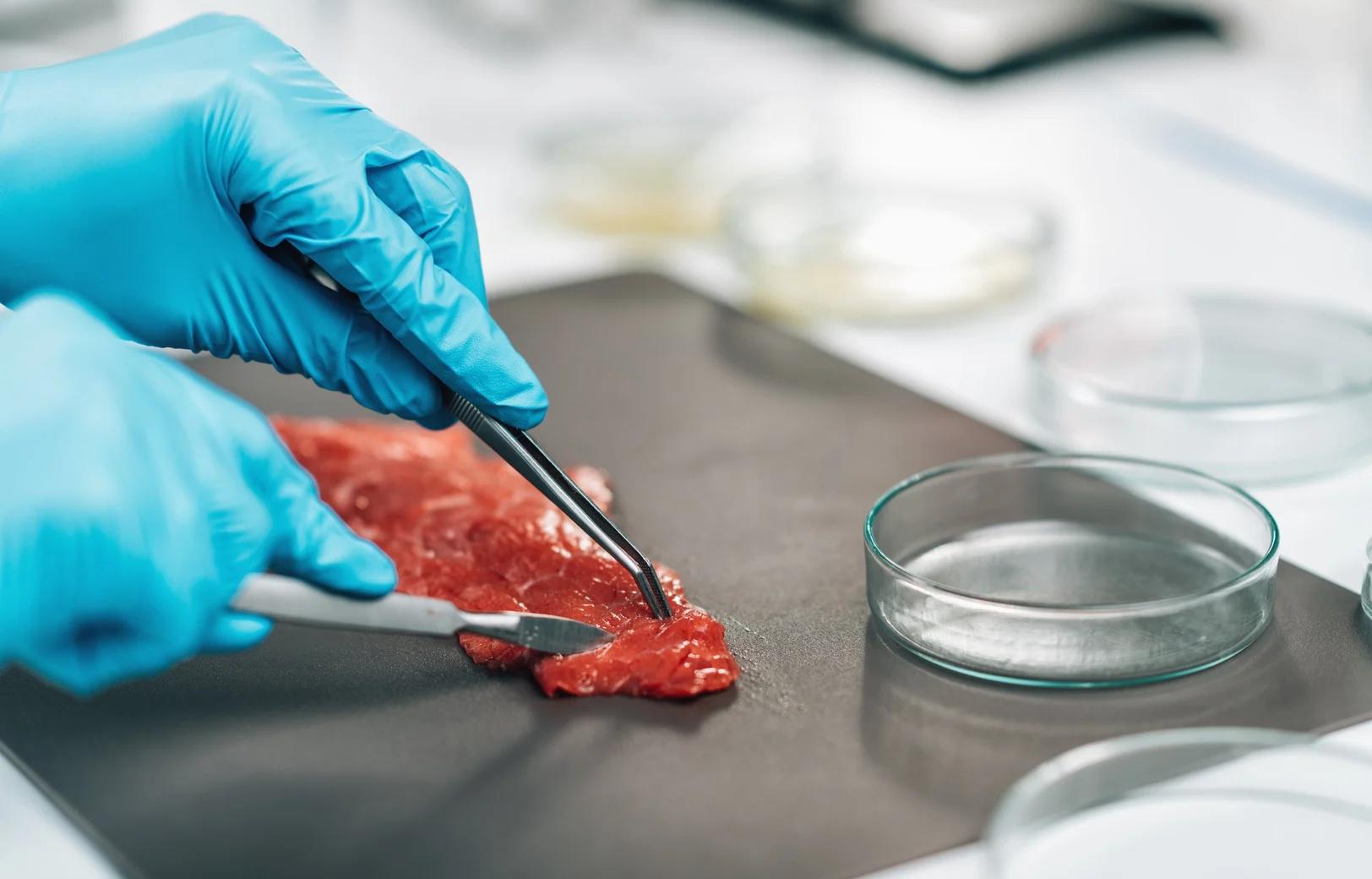Anti-Counterfeiting Protection. Product Verification
Case Study: How Blockchain Can Solve the Issue with Halal Standard Compliance
07/31/2023 · 7 min read
What is the Halal standard? How big is the industry? What problems trouble it? And how they can be solved? All of these questions will be answered here in this article!
 Photo by Rawpixel on EnvatoElements
Photo by Rawpixel on EnvatoElementsThe global Muslim market is growing rapidly and already there are now 1.8 billion muslims in the world, and by 2030, this number will increase to 2.2 billion. With the growth of the Muslim market, the demand for Halal products is also on the rise.
In 2024, the halal food market will grow at a CAGR of 16% from the global food industry, generating about$2.5 trillion in revenue (more than the $700 billion of revenue produced this year).
However, in recent decades, the lack of transparency in the process of meat production, distribution and even certification has become one of the major and acute problems of the halal industry.
What's Wrong with Halal Certification?
Halal certification in Kazakhstan can be issued to meat producers only after passing a laboratory test. But this did not improve the situation by a large margin. After all, there were no unified standards for halal in CIS before — certificates were issued to producers by various private companies.
At the same time, we had no problems with laboratories and the ability to conduct genetic-molecular research in the country. But, what we did have, is the problem with the integrity of the certification procedures. Often it was completed only formally.
And there were plenty of other situations caused by such a system. Market participants themselves told about cases when exporters were denied deliveries despite having an export certificate from one certifying company. They then had to go again to obtain a new certificate, but this time from another company.
It became clear that the new measures need to be taken to track the entire certification process so that all stakeholders would be assured that all procedures have been carried out as intended.
The Meat Traceability Problem: Recent Scandals of Pork DNA Found in Halal Products
 Photo by nunezimage on EnvatoElements
Photo by nunezimage on EnvatoElementsLack of transparency with halal certification is not the only problem plaguing the halal industry. There is a much bigger problem at play and that is the lack of traceability of meat throughout the supply chain. It is increasingly common to find cases where parts of meat under the halal standard have been found to be completely contrary to the standard.
For example, in a large-scale study of halal-certified products randomly sampled in Thai markets in 2019, 4,829 samples were tested for the presence of four potentially haram substances. Of these, 62 samples (1.3%) tested positive for the presence of one or more of these ingredients.
Further, in December 2020, it was revealed in Malaysia that importers were using fake halal logos to sell meat in the country. As a result, two directors of a company specializing in frozen meat were charged with forging halal logos on their vehicles.
And more recently this year, Russia discovered pig DNA in halal sausages from Kyrgyzstan. The results of a further inspection of Kyrgyz fish factories in March proved gross violations on the part of the republic's veterinary service in certifying export shipments to Russia.
The same was then confirmed with the control over the shipment of meat products. The halal sausage imported from Kyrgyzstan was found to contain pork and soy not declared in its composition. In response, the manufacturer assured that they produce meat products strictly according to the Halal standard. We are talking about one of the largest meat processors in the country — the company "Adal Azyk" and its products under the trademark "Toiboss".
The company's General Director, Myrzabek Orumbayev, noted in his opening speech that the company never used pork in its production and suggested that pork DNA could have gotten into the halal sausage during transportation.
As a result of careful research, it turned out that someone else was carrying out counterfeit meat under the fake brand logo “Toiboss". The company exports and fully controls the delivery of products only to Moscow and Novosibirsk. And from there it is distributed to other cities by different suppliers.
Why Do Meat Traceability Problems Arise?
Tracking and controlling the meat production process is a critical aspect of maintaining halal standards. But the meat industry is often challenged by a lack of transparency and reliability of information. Producers and suppliers may face the following challenges:
How Does Blockchain Solve this Tracking Issue?
 Photo by Wavebreakmedia on EnvatoElements
Photo by Wavebreakmedia on EnvatoElementsThis causes several questions. In light of the lack of an accepted global standard, how can ingredient buyers, food traders, retailers and consumers know if the certificate is authentic? And how can we know that the product was produced in accordance with its manufacturing halal instructions?
Blockchain technology for monitoring and tracking can actually greatly help in this.
For instance, Nida Khan, CEO of Nash fintechX, a Luxembourg-based startup offering software solutions using blockchain and AI, noted that their services have been useful for halal companies that have moved to remote working or a hybrid model, allowing managers to monitor compliance with halal regulations by staff and suppliers.
Blockchain technology itself presents a distributed and tamperproof database that records all transactions and events as separate "blocks”. These blocks are linked together using cryptographic methods, making the system secure and transparent. Here's how blockchain can help solve traceability problems in the meat industry:
However, most blockchains cannot be adequately used to solve the problem of tracking meat and halal certification, as they work on very complex mathematical calculations that require a lot of energy, money, and at the same time sacrifice the speed of information transfer.
Ikarus Food Blockchain and How is it Different from Other Systems?
 Photo by microgen on EnvatoElements
Photo by microgen on EnvatoElementsIkarus Food is one of Prometeo Chain System's solutions aimed at increasing the efficiency and transparency of food supply chains, while maintaining full control over real-time operations and ensuring the security and confidentiality of the obtained data.
Unlike the existing blockchain solutions, our system has no speed and scalability issues, and can even support various IoT devices due to its unique directed, acyclic structure, and consensus algorithm. So, while existing blockchains process around 7 or more messages per second, our system is capable of handling speeds of up to 230,000 messages per second, even outpacing Visa and Mastercard by 10 times, and the price of each transaction is very low. This is why we are able to work with large certification organizations, their clients, and other stakeholders in halal industry without system load issues.
Other features of our platform also include:
With Ikarus Food you can trace the following factors in the origin of your meat:
Thus, the integration of blockchain technology into the halal industry could be a key step in solving the problem of tracking and monitoring halal meat production standards. It will provide transparency, reliability and consumers’ trust in the origins of halal meat. Due to the distributed nature of blockchain and the ability to store production and certification data, this technology has the potential to improve the quality of halal products and facilitate the growth of international trade in Halal-standard meat.
Reference List:
Forbes.Kz. (2022, May 27). Казахстанские сертификаты халал будут признавать в странах Персидского залива. www.forbes.kz. https://forbes.kz//finances/markets/kazahstan_akkreditoval_laboratoriyu_dlya_sertifikatsii_halyalnoy_produktsii_v_arabskih_stranah
Буянов, С. (2019, March 26). Откуда в казахстанский халал попадает ДНК свинины. www.forbes.kz. https://forbes.kz/finances/markets/otkuda_v_kazahstanskiy_halal_popadaet_dnk_svininyi/
Очередным подтверждением недостаточной эффективности государственного контроля в Киргизии стало выявление во ввезённой в Россию халяльной колбасе ДНК свиньи. (2023, April 7). Россельхознадзор. https://fsvps.gov.ru/ru/fsvps/news/217618.html
“Свинины нет”. В “Тойбоссе” заявили, что готовы провести проверку продукции за рубежом. (n.d.). https://kaktus.media/doc/478729_svininy_net._v_toybosse_zaiavili_chto_gotovy_provesti_proverky_prodykcii_za_rybejom.html
Серікбол. (2022, May 19). Блокчейн может предотвратить мошенничество в халяль-секторе международной торговли. KAZISLAM.KZ. https://kazislam.kz/blokchejn-mozhet-predotvratit-moshennichestvo-v-halyal-sektore-mezhdunarodnoj-torgovli/
Тонконог, О. (2022). Зачем Минторговли Казахстана вводит новые стандарты халал. Kursiv Media Казахстан https://kz.kursiv.media/2022-11-24/zachem-mintorgovli-kazahstana-vvodit-novye-standarty-halal/